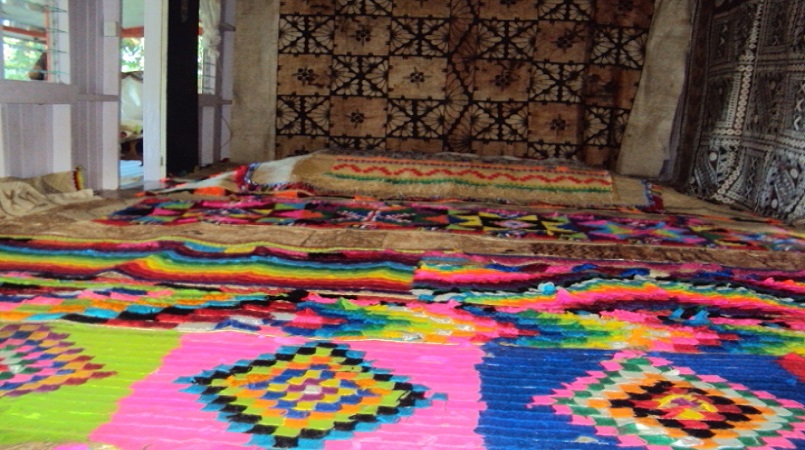
Throughout the Pacific, woven mats and tapa cloths are used for social, ceremonial and decorative purposes.
These handicrafts are often bought by tourists as a cultural memento of the Pacific Country they visited.
Irrespective of size, woven mats and tapa cloths are permitted into New Zealand. However, up until recently, a requirement for these goods to be accompanied by a Phytosanitary Certificate verifying the absence of live insects and other materials of quarantine concern. This requirement attracts additional costs which have discouraged tourists from purchasing these handicrafts.
Thanks to assistance from the Pacific Horticultural and Agricultural Market Access (PHAMA) Program, Vanuatu Biosecurity has negotiated with New Zealand’s Ministry for Primary Industries (MPI) to exempt accompanied single mats smaller than two meters from the Phytosanitary Certificate requirement.
According to PHAMA Trade Facilitation Adviser, Semy Siakimotu, this result will make it easier for New Zealand tourists to take handwoven mats and tapa cloths home, eliminating the additional cost of a Phytosanitary Certificate and encouraging the purchase of these handicrafts. “This will have a positive impact on the livelihoods of handicrafts producers and sellers across the Pacific,” said Mr Siakimotu.
This work builds on PHAMA’s assistance to develop awareness guides for handicraft vendors and tourism operators on Australian and New Zealand import requirements for handicrafts. PHAMA acknowledges the support of Biosecurity Vanuatu, the Vanuatu Department of Tourism, Secretariat of the Pacific Community, South Pacific Tourism Office, European Union and New Zealand Ministry for Primary Industries for their assistance in promoting the sale of handicrafts.
Established in 2011, PHAMA is an aid-for-trade programme, funded by the Australian and New Zealand Governments. It aims to promote Pacific exports of primary and value added produce by helping exporters to meet trading partners’ regulatory requirements and quality standards. PHAMA operates in six countries: Fiji, PNG, Samoa, Solomon Islands, Tonga, and Vanuatu
